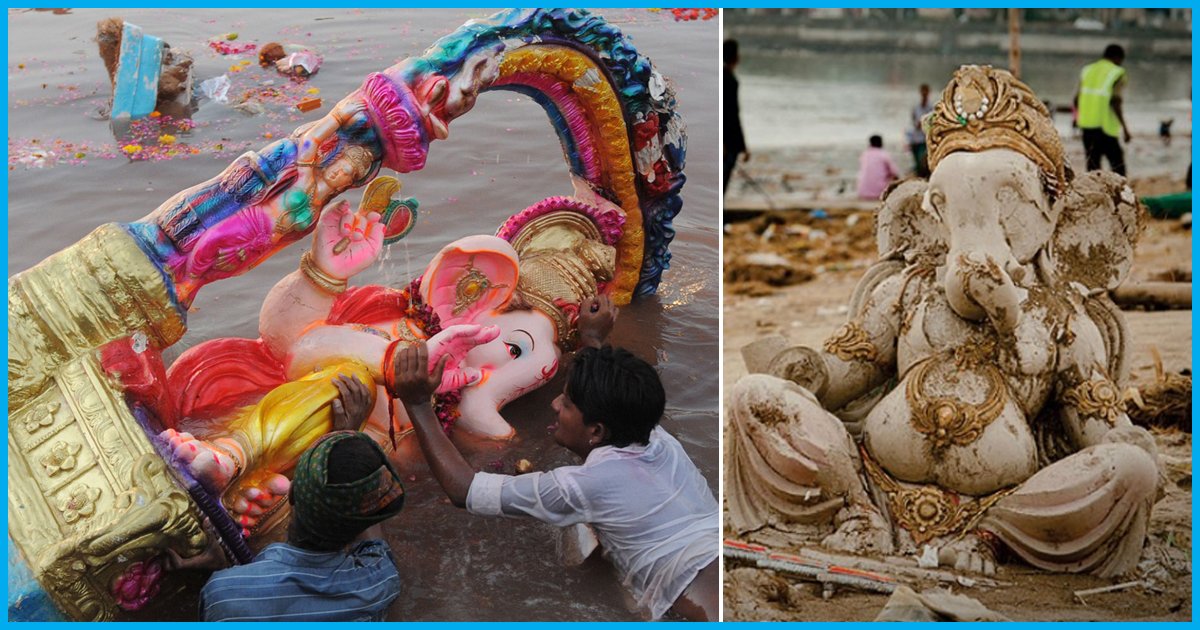
Bengaluru: City Witnesses Its Most Eco-Friendly Ganesh Chaturthi This Year
This year, Bangalore celebrated its most environment-friendly Ganesh Chaturthi as out of 3.48 lakh idols that were immersed in lakes and mobile tanks, 16,353 idols, which is less than 5% of the total number, were made of plaster of Paris (PoP), as per reports by The Hindu.
The Karnataka State Pollution Control Board (KSPCB) has noted that PoP idols have remained a concern for the state for some time now as they are non-degradable, tend to clog water bodies and often leach toxic paints into lakes.
In spite of the ban, nearly a third of idols immersed were calculated to be made of PoP last year. Over 30,000 such PoP idols had been manufactured and stored in the State in 2016.
The fall in the use of Plaster of Paris
This year there has been a dramatic decline in the use of such idols, KSPCB chairman Lakshman reportedly said. He has attributed this success to the outreach and the awareness programmes that have been carried out by the board as well as other civic agencies.
“Considering that a ban on PoP is in place, the more than 16,000 PoP idols that were immersed could have been from old stock, smuggled illegally from the border, or made in illegal units,” said Mr Lakshman speaking to The Hindu.
Control measures
Preparations for waste management during the festivities had started nearly six months ago with coordination and strategy meetings said Sarfaraz Khan, Joint Commissioner (Solid Waste Management)
Volunteers had been appointed at the immersion points to keep a note of the number of idols, especially those made by PoP. They also ensured that waste did not end up in lakes and was immediately collected. Flowers and organic waste, and packaging waste from the idols were also picked up by these volunteers.
The festivities have generated between 400 to 440 tonnes of garbage. Much of this is in the form of plantain leaves and flowers, which were composted. While some PoP waste ends up in landfills, some may be sent to Rock Crystals, a recycling unit at Chikkajala, where it will be crushed to extract gypsum. Last year, 40 tonnes of PoP idols were sent for recycling, this year the authorities expect that the quantity would be less.
The Logical Indian community appreciates the move taken by the Karnataka government that has resulted in a significant reduction in the use of plaster of Paris idols. We hope that similar initiatives are taken up by other states in India, making headway towards a greener India.
 All section
All section













